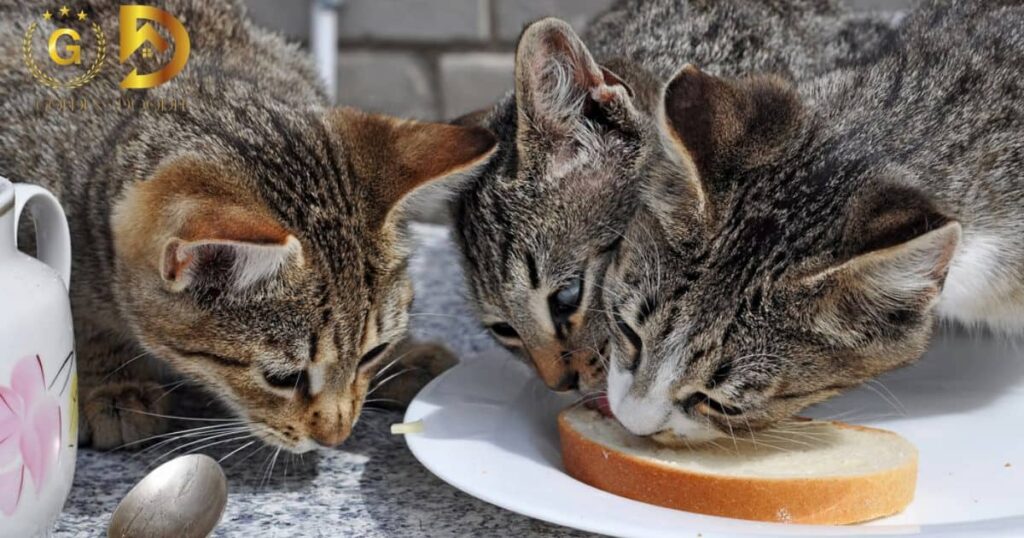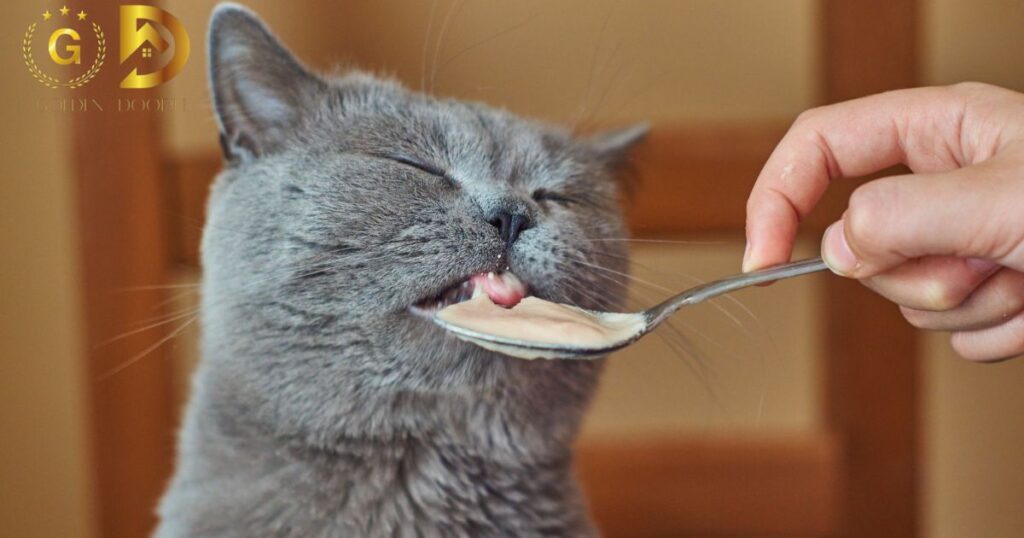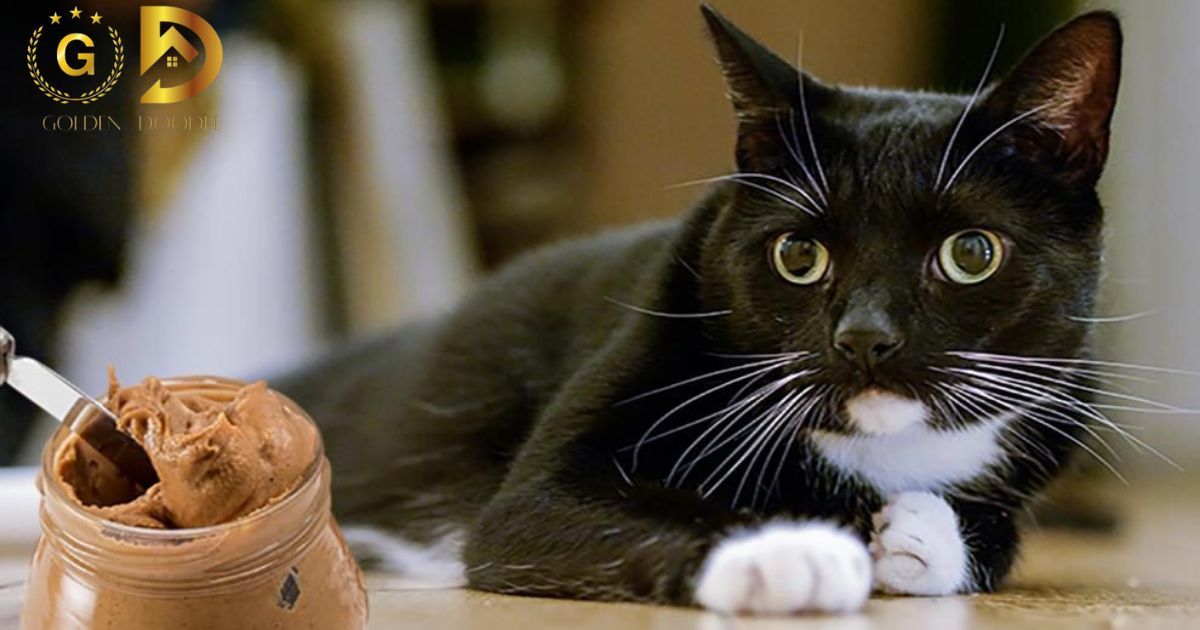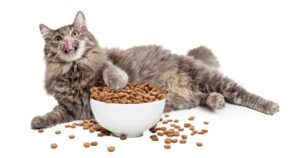It is safe for cats to eat peanut butter. Peanut butter is not toxic to cats, but it is not an ideal treat for them. While some cats may enjoy the taste, it is high in fat and can be difficult for them to digest.
Curious about treating your feline friend to a dollop of peanut butter Before you spread the excitement, let’s unravel the mystery of whether cats can have peanut butter. Explore the whisker-worthy details to ensure your cat’s snack time is both tasty and safe.
Wondering if your cat can indulge in some peanut butter goodness? While peanut butter itself isn’t toxic to cats, it’s not an ideal treat for them. Cats are obligate carnivores, and their digestive systems might not handle the high-fat content well. Additionally, some peanut butter brands may contain xylitol, a sweetener harmful to cats. It’s generally safer to opt for cat-friendly treats to ensure your feline friend’s well-being. Always consult with your vet before introducing new foods to your cat’s diet.
Nutritional Considerations
Nutritional Considerations means thinking about the food you eat and how it affects your health. It is like making choices about what to eat based on what your body needs to stay strong and well.
When we talk about nutritional considerations, we’re talking about paying attention to things like vitamins, minerals and other nutrients that our bodies need to function properly. It is about making sure we eat a variety of foods that give us the right balance of these nutrients.
We might consider eating fruits and vegetables because they provide important vitamins and minerals. We might also think about including protein in our meals, like from meat, fish, eggs or plant-based sources, because protein helps our muscles and body tissues grow and repair.
It is not just about what we eat, but also about how much we eat. Eating too much or too little can affect our health. So, nutritional considerations include being aware of portion sizes and trying to eat a balanced diet.
Risks and Precautions
Risks and Precautions refers to potential dangers or uncertainties associated with something, and the steps you take to avoid or minimize those dangers.
Imagine you are about to do something or use something, like crossing the street or taking medicine. There might be risks, which are things that could go wrong or cause harm. To be safe, you take precautions which are careful actions or steps to reduce or eliminate those risks.
when crossing the street, there is a risk of getting hit by a car. Precautions would include looking both ways before crossing, using a crosswalk, and waiting for the traffic signal. Similarly, with medicine, there might be risks of side effects. Precautions would involve following the doctor’s instructions, taking the right dose and being aware of any potential reactions.
Risks and Precautions is like being aware of what could go wrong and being careful to prevent those things from happening. It is about being safe and making choices that protect you from harm.

Benefits of Peanut Butter For Cats
While peanut butter is generally safe for cats in moderation, it’s important to note that it should not be a significant part of their diet. Here are a few potential benefits and considerations of feeding small amounts of peanut butter to cats.
Protein Source
Peanut butter contains some protein which is essential for a cat’s overall health. However, cats primarily need protein from meat sources and peanut butter should only be given occasionally as a treat.
Palatability
Some cats may find peanut butter tasty and it can be used as a way to encourage them to take medications. Wrapping a pill in a small amount of peanut butter might make it more appealing for the cat to consume.
Healthy Fats
Peanut butter contains healthy fats such as monounsaturated and polyunsaturated fats. These fats are important for various bodily functions.
Allergies
Some cats may be allergic to peanuts or develop allergies over time. Watch for any signs of allergic reactions, such as itching, redness, swelling or difficulty breathing.
High in Calories
Peanut butter is calorie-dense and excessive consumption can contribute to weight gain. Obesity in cats can lead to various health issues, so it is essential to limit the amount of peanut butter given.
Xylitol Content
Some peanut butters contain xylitol, a sugar substitute that is toxic to cats. Always check the ingredient list to ensure that the peanut butter does not contain xylitol.
Digestive Concerns
Peanut butter is sticky and can be challenging for cats to digest in large amounts. Feeding too much may lead to gastrointestinal issues such as diarrhea.

Allergic Reactions
Allergic reactions happen when the body doesn’t like something it comes into contact with. This can be food, medicine or things in the air like pollen or dust. When someone has an allergic reaction, their body tries to protect itself, but it does not always go well.
Common signs of an allergic reaction include itching, redness, and swelling. Sometimes, people might have trouble breathing or get a rash. In severe cases, it can be really serious and even life-threatening.
If you know you have allergies, it is important to stay away from the things that make you react. Some people carry a special medicine called an epinephrine auto-injector just in case they accidentally eat or touch something that triggers their allergy. This shot can quickly help calm down the reaction.
If someone is having a bad allergic reaction, it is crucial to get help fast. Call for assistance and, if possible, use the person’s epinephrine auto-injector if they have one. It is always better to be safe and prevent allergic reactions by avoiding known triggers. Similarly, when considering your furry friends’ well-being, it’s essential to ask questions like Can Dogs Have Bananas? before introducing new foods to their diet, ensuring their safety and overall health.
Frequently Asked question
What is the recommended serving size for cats when it comes to peanut butter?
A small amount, like a tiny lick is generally considered safe. However, it’s essential not to make it a regular part of their diet.
Are there any health benefits to giving cats peanut butter?
While it contains some protein, peanut butter is not an ideal source of nutrients for cats. There are better, cat-friendly options available.
Can kittens eat peanut butter?
It is best to avoid giving peanut butter to kittens as their delicate digestive systems may not handle the high-fat content well.
What should I do if my cat accidentally eats a large amount of peanut butter?
Monitor your cat for any signs of distress or allergic reactions. If there are concerns, contact your veterinarian.
Are there alternative treats that are safer for cats than peanut butter?
Yes, there are many cat-friendly treats available that are specifically designed to meet their nutritional needs without the drawbacks of human foods like peanut butter.
How can I tell if my cat enjoys peanut butter?
Some cats may like the taste of peanut butter, but others may not be interested. If you are introducing it for the first time, start with a tiny amount and observe your cat’s reaction.
Final Thoughts
Cats can technically have peanut butter in small amounts, it is not an ideal treat for them. The high-fat content may contribute to obesity and digestive issues and some cats could be allergic to peanuts. As responsible pet owners, it is crucial to prioritize the overall health and well being of our feline friends.
If you decide to give your cat a taste of peanut butter, do so in moderation and be vigilant for any signs of discomfort or allergic reactions. However, it is generally advisable to opt for cat-specific treats that are formulated to meet their nutritional needs without the potential drawbacks of human foods.
Remember, each cat is unique and what works for one may not be suitable for another. Always consult with your veterinarian if you have any concerns about introducing new foods into your cat’s diet and prioritize a balanced and cat-friendly approach to their nutrition and well being.

GoldendoodlePet specializes in expert Ruby Reverie pet care advice and services. With 8 years’ experience, the author offers invaluable insights and guidance.











